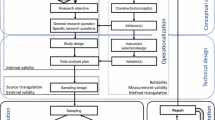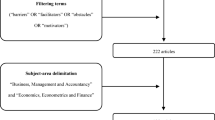Abstract
Based on content analysis of faculty evaluation policies, this article addresses faculty evaluation policies and notes the links between the ideology of neoliberalism and a tournament system of faculty evaluation in research-intensive universities in China and the USA. The focus is upon the similarities and differences of faculty evaluation systems in China and the USA. Faculty evaluation reflects neoliberal values and the logic of the market, with corresponding diminution of academic logic and the traditional values of the academy, particularly academic quality, through market-oriented competition. Both systems are tournament-like systems that emphasize the management of performance and operations of competitive mechanisms, with the goals of efficiency and effectiveness. Three main differences between the faculty evaluation systems in US research universities and Chinese research universities are evident: a traditional concept of collegiality in the US university but not in China; in the USA, criteria for and procedures of faculty promotion evaluation indicate reasonable flexibility while the faculty evaluation system in Chinese research university lacks flexibility; and, service requirements for faculty promotion evaluation in Chinese research universities are not as stringent as in the USA. Two institutional logics operate in the promotion evaluation process of research university faculty—academic and market, or neoliberal—and further research is needed to determine the effects of these two logics.


Similar content being viewed by others
References
Altbach, P. G. (2011). Harsh realities: the professoriate in the twenty-first century. In Altbach, P.G., Gumport, P. J., & Berdahl, R. O. (Ed.), American higher education in the twenty-first century (pp: 227–253). The Johns Hopkins University Press.
Gu, J. X., & Luo, Y. Z. (2016). Da xue jiao shi xue shu ping jia: Chang yu te zheng, jia zhi biao zhun ji zhi du jian gou [academic evaluation of university faculty: field characteristics, value standard and system construction]. Jiao Yu Fa Zhan Yan Jiu [Educational Development Research], 23, 1–7.
Ball, S. J. (2012). Global education inc.: new policy networks and the neo-liberal imaginary. New York: Routledge.
Bok, D. (2003). Universities in the marketplace: the commercialization of higher education. Princeton: Princeton University Press.
Bryman, A., Haslam, C., & Webb, A. (1994). Performance appraisal in UK universities: a case of procedural compliance. Assessment & Evaluation in Higher Education, 19(3), 175–187.
Campbell, C. M., & O’Meara, K. A. (2014). Faculty agency: departmental contexts that matter in faculty careers. Research in Higher Education, 55(1), 49–74.
Davies, B., & Bansel, P. (2007). Neoliberalism and education. International Journal of Qualitative Studies in Education, 3, 247–259.
Deem, R., & Brehony, K. J. (2005). Management as ideology: the case of ‘new managerialism’ in higher education. Oxford Review of Education, 31(2), 217–235.
Eddy, P. L., & Hart, J. (2012). Faculty in the hinterlands: Cultural anticipation and cultural reality. Higher Education, 63, 751–769.
Fairweather, J. S. (2005). Beyond the rhetoric: trends in the relative values of teaching and research in faculty salaries. The Journal of Higher Education, 76(4), 401–442.
Feller, I. (2009). Performance measurement and the governance of American academic science. Minerva, 47, 323–344.
Fox, M. F., & Colatrella, C. (2006). Participation, performance, and advancement of women in academic science and engineering: what is at issue and why. Journal of Technology Transfer, 31, 377–386.
Gonzales, L. (2014). Framing faculty agency inside striving universities: an application of Bourdieu’s theory of practice. The Journal of Higher Education, 85(02), 193–218.
Hearn, J. C., & Anderson, M. S. (2002). Conflict in academic departments: an analysis of disputes over faculty promotion and tenure. Research in Higher Education, 43(5), 503–529.
Huang, B. (2017). Gao xiao jiao shi jiao xue neng li ping jia: fan si yu jian gou [The evaluation of college teachers’ teaching ability: reflection and construction]. Jiao Yu Yan Jiu [Educational Research], (02): 90–96.
Hurtado, S., & Sharkness, J. (2008). Scholarship is changing, and so must tenure review. Academe, 94(05), 37–39.
Jackson, J. K., Latimer, M., & Stoiko, R. (2017). The dynamic between knowledge production and faculty evaluation: perceptions of the promotion and tenure process across disciplines. Innovative Higher Education, 42, 193–205.
Krippendorff, K. (2004). Content analysis: an introduction to its methodology (Second ed.). Thousand Oaks: Sage Publications.
Lawrence, J. H., Celis, S., & Ott, M. (2014). Is the tenure process fair?: what faculty think. The Journal of Higher Education, 85(2), 155–192.
Levin, J. S. (2006). Faculty work: tensions between educational and economic values. The Journal of Higher Education, 77(1), 62–88.
Levin, J. S. (2017). Community colleges and new universities under neoliberal pressures: organizational change and stability. New York: Palgrave MacMillan.
Levin, J. S., Martin, M. C., & López-Damián, A. I. (2020). University management, the academic profession, and neoliberalism. Albany: SUNY Press.
Levin, J., Shaker, G., & Wagoner, R. (2011). Post neoliberalism: the professional identity of faculty off the tenure-track. In B. Pusser, K. Kempner, S. Marginson, & I. Ordorika (Eds.), Universities and the public sphere: knowledge creation and state building in the era of globalization (pp. 197–217). New York: Routledge.
Li, Z. F., & Jiang, L. (2017). Gao xiao jiao shi chang pin jiao zhi zhi du: Quan li bo yi yu zhi du bian qian [The university tenure system in China: power gaming and institutional change]. Gao Deng Jiao Yu Yan Jiu [Journal of Higher Education], 02, 25–31.
Liu, Z.Y., & Shen, H. (2017). Yan jiu xing da xue chang pin jiao zhi zhi du: Zheng yi, gai ge yu jie jian [Tenure system reform in American research university: dispute, reform and reference], Jiao Yu Fa Zhan Yan Jiu [Educational Development Research], (23): 56–63.
Massy, W. F. (2016). Reengineering the university. Baltimore: Johns Hopkins University Press.
Ministry of Education. (2011). Opinions of Ministry of Education on further improving the evaluation of philosophy and social science research in colleges and universities. Retrieved from http://old.moe.gov.cn//publicfiles/business/htmlfiles/moe/A13_zcwj/201111/xxgk_126301.html
Ministry of Education. (2013). Opinions of the Ministry of Education on deepening the reform of science and technology evaluation in colleges and universities. Retrieved from http://www.moe.gov.cn/s78/A16/s8213/A16_gggs/201407/t20140725_172306.html
Ministry of Education. (2017). Several opinions on deepening the reform of simplified administration, decentralization and management, and optimization services in higher education. Retrieved from http://www.moe.gov.cn/srcsite/A02/s7049/201704/t20170405_301912.html
Musselin, C. (2005). European academic labor markets in transition. Higher Education, 49, 135–154.
National Education Commission. (1986). Regulations on the trial of faculty’s posts. Retrieved from https://wenku.baidu.com/view/b51de80c58eef8c75fbfc77da26925c52cc591de.html
National Education Commission. (1991). Opinions on continuing to do a good job in evaluating faculty’s positions in colleges and universities. Retrieved from http://www.chinalawedu.com/falvfagui/fg22598/56970.shtml
Olssen, M., & Peters, M. (2005). Neoliberalism, higher education and the knowledge economy: From the free market to knowledge capitalism. Journal of Education Policy, 20(3), 313–345.
O’Meara, K. (2002). Uncovering the values in faculty evaluation of service as scholarship. The Review of Higher Education, 26(1), 57–80.
Peking University. (2013). Faculty manual 2013. Retrieved from https://hr.pku.edu.cn/xzzx/
Peking University. (2019). Faculty manual 2019. Retrieved from https://hr.pku.edu.cn/xzzx/
Pusser, B., Kempner, K., Marginson, S., & Ordorika, I. (Eds.). (2011). Universities and the public sphere: knowledge creation and state building in the era of globalization. New York: Routledge.
Rosewell, K., & Ashwin, P. (2018). Academics’ perceptions of what it means to be an academic. Studies in Higher Education, 44, 2374–2384 1-11.
Saunders, D. B. (2010). Neoliberal ideology and public higher education in the United States. The Journal of Critical Education Policy Studies, 1, 42–77.
Seddon, T., Ozga, J., & Levin, J. S. (2013). Global transitions and teacher professionalism. In T. Seddon & J. S. Levin (Eds.), World Yearbook of Education 2013. Educators, professionalism and politics: global transitions, national spaces, and professional projects (pp. 3–24). London: Routledge.
Schuster, J. K., & Finkelstein, M. J. (2006). The American faculty: the restructuring of academic work and careers. Baltimore: Johns Hopkins University Press.
Shen, H. (2012). Lun da xue jiao shi ping jia de mu di [Goals of faculty evaluation]. Gao deng jiao yu yan jiu [Journal of Higher Education], 11, 43–48.
Shen, H., & Lin, Z. D. (2019). Da xue jiao shi ping jia de zhu ke ti guan xi ji qi ping heng [Subject-object relationships and its balance of faculty evaluation]. zhong guo gao jiao yan jiu [Chinese Higher Education Research], 06, 48–54.
Shen, H., & Liu, S. (2016). Da xue jiao shi ping jia zhi du de wu hua luo ji ji qi er chong xing [the materialization logic and its duality of university faculty evaluation system]. Jiao yu yan jiu [Educational Research], 03, 46–55.
Siekkinen, T., Pekkola, E., & Carvalho, T. (2020). Change and continuity in the academic profession: Finnish universities as living labs. Higher Education, 79, 533–551.
Slaughter, S., & Rhoades, G. (2004). Academic capitalism and the new economy: markets, state and higher education. Baltimore: Johns Hopkins University Press.
State Council. (2015). Guidance on optimizing the academic environment. Retrieved from http://www.scio.gov.cn/xwfbh/xwbfbh/wqfbh/33978/34196/xgzc34202/Document/1469524/1469524.htm
State Council. (2016). Opinions on deepening the reform of professional title system. Retrieved from http://www.mohrss.gov.cn/SYrlzyhshbzb/dongtaixinwen/buneiyaowen/201701/t20170109_264057.html
State Council. (2018). Opinions on deepening the reform of project evaluation, talent evaluation and organization evaluation. Retrieved from http://www.gov.cn/zhengce/2018-07/03/content_5303251.htm
Sutherland, K. A. (2017). Constructions of success in academia: An early career perspective. Studies in Higher Education, 42(4), 743–759.
University of California. (2015). Academic personnel review procedures for senate faculty 2015-2016. Retrieved from https://www.ucop.edu/academic-personnel-programs/academic-personnel-policy/index.html
Wang, L. X. (2015). Zhong mei yan jiu xing da xue jiao shi ping jia zhi du bi jiao yan jiu [Comparative study on the assessment systems for teachers of research-based universities of China and the United States]. Qingdao: Ocean University of China.
Ward, S. C. (2012). Neoliberalism and the global restructuring of knowledge and education. New York: Routledge.
Weisshaar, K. (2017). Publish and perish? An assessment of gender gaps in promotion to tenure in academia. Social Forces, 96(2), 529–560.
Wilson, F., & Beaton, D. (1993). The theory and practice of appraisal: progress review in a Scottish university. Higher Education Quarterly, 47(02), 163–189.
Yan, G. C. (2012). Xue Shu Deng Ji Xi Tong Yu Jing Biao Sai Zhi [The academic ranking system and the tournament]. Bei Jing DaXue Jiao Yu Ping Lun [Peking University Education Review], (3):8–24.
Yan, G. C. (2018). Xue shu zhi ye ya li yu jiao shi xing dong qu xiang de zhi du xiao ying [Academic profession stress and the system effect on faculty’s action orientation]. Gao Deng Jiao Yu Yan Jiu [Journal of Higher Education], 11, 45–55.
Yan, Y. P. (2008). Zhong mei jiao shi ping jia de bi jiao yan jiu [A comparative study on teacher evaluation between America and China]. Shanghai: East China Normal University.
Youn, T. K., & Price, T. M. (2009). Learning from the experience of others: the evolution of faculty tenure and promotion rules in comprehensive institutions. The Journal of Higher Education, 80(2), 204–237.
Funding
This work was supported by the National Natural Science Foundation of China under Grant 71804069 and the Ministry of Education in China under Grant 17YJC880028.
Author information
Authors and Affiliations
Corresponding author
Additional information
Publisher’s note
Springer Nature remains neutral with regard to jurisdictional claims in published maps and institutional affiliations.
Rights and permissions
About this article
Cite this article
Gu, J., Levin, J.S. Tournament in academia: a comparative analysis of faculty evaluation systems in research universities in China and the USA. High Educ 81, 897–915 (2021). https://doi.org/10.1007/s10734-020-00585-4
Published:
Issue Date:
DOI: https://doi.org/10.1007/s10734-020-00585-4




